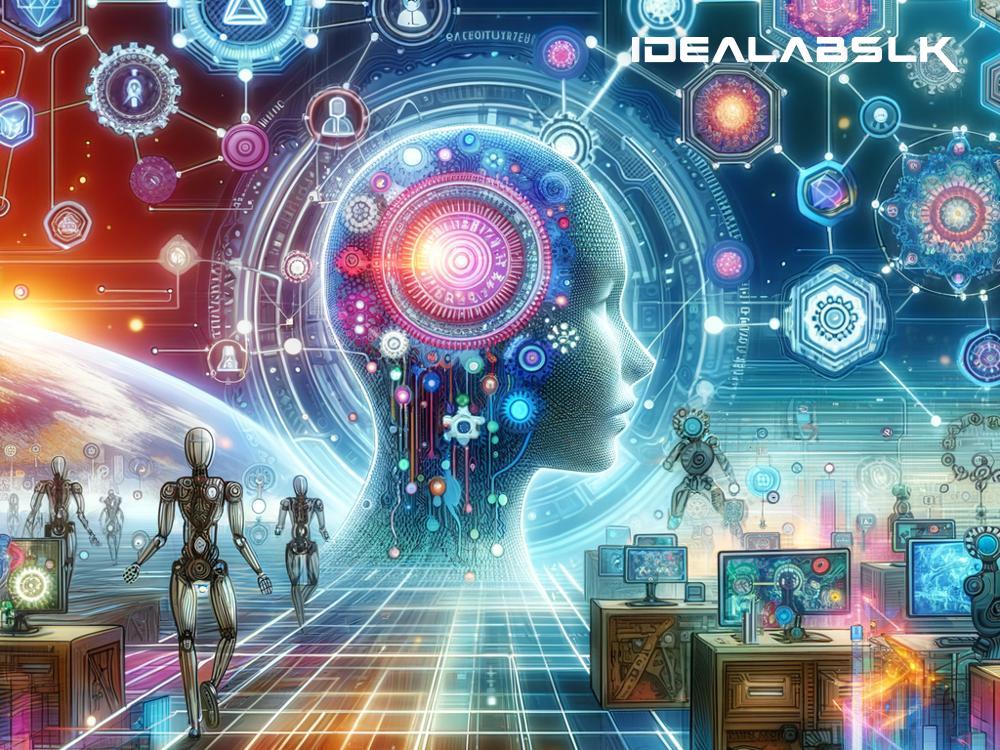Title: The Future of Gaming: How AI and Blockchain Will Level Up Decentralized Economies by 2025
The gaming industry is at the edge of a revolution, and it’s not just about better graphics or more immersive experiences. By 2025, we're looking towards a new era where Artificial Intelligence (AI) and Blockchain technology combine to transform the gaming world, especially in the realm of decentralized gaming economies. But what does this mean for gamers and developers alike?
Understanding the Basics
Before we dive deep, let's break down the jargon. Blockchain is a technology that allows for secure, transparent, and tamper-proof record-keeping. Imagine it like a digital ledger that's open for everyone to see, but no single person can cheat or change the records. This technology is what powers cryptocurrencies like Bitcoin.
On the flip side, Artificial Intelligence, or AI, is the development of computer systems that can perform tasks that normally require human intelligence. This includes things like understanding natural language, recognizing patterns, and learning from data.
Now, combine these two technologies, and you get a powerful duo that can revolutionize how we play, create, and earn from games.
Decentralizing Gaming Economies
The concept of decentralized gaming economies isn't entirely new. Games have long had their own economies, with players trading virtual goods like skins, weapons, or even characters. However, these transactions usually occur within a centralized system controlled by the game's developers or publishers. This means they have the power to regulate, restrict, or even wipe out a player's assets.
Enter blockchain. By 2025, we anticipate a significant shift towards blockchain-based games, where the economies are decentralized. This means no single entity has control. Instead, the game's assets, from in-game currency to items, are recorded on a blockchain, giving players true ownership of their virtual possessions. This opens up new possibilities for trading, selling, and even earning real money from playing.
AI's Role in This New World
So, where does AI fit into this picture? In several exciting ways! By 2025, AI will not just enhance the gaming experience but also become a backbone for managing these decentralized economies. Here are a few examples:
-
AI-Driven Game Development: AI can help create more dynamic and responsive game worlds that adapt to players' actions. This can make games more engaging and extend their lifespan, which is crucial for maintaining a vibrant economy.
-
Fraud Detection and Security: With real value attached to in-game items, security becomes paramount. AI algorithms are adept at spotting unusual patterns that could indicate fraudulent activity, helping to keep the economy fair and secure.
-
Automated Marketplaces: AI can manage in-game marketplaces, ensuring that prices stay balanced and transactions run smoothly. This can prevent the economic instability that sometimes plagues online games.
-
Personalized Experiences: Finally, AI can analyze player behavior to tailor the gaming experience, making it more enjoyable. This personalization can keep players engaged, encouraging a more active and vibrant economy.
Challenges and Opportunities
Of course, blending AI and blockchain into gaming doesn't come without its hurdles. Technical challenges, scalability issues, and the need for widespread adoption are just a few obstacles to overcome. However, the potential benefits could far outweigh these difficulties.
For players, this new era promises more control, real ownership of assets, and possibly new ways to earn from gaming. For developers, it offers a chance to create more engaging and long-lived games, tapping into vibrant economies that extend beyond the game itself.
The Road to 2025
We're already seeing the seeds of this future being planted, with blockchain-based games and AI technologies evolving rapidly. By 2025, these technologies are poised to merge seamlessly, transforming how we think about gaming economies.
The key to this transition will be collaboration—between technologists, gamers, and game developers—to ensure these new economies are built in a way that's accessible, secure, and fun. It's an exciting journey ahead, and one that promises to redefine the rules of the game.
Conclusion
As we look towards 2025, the integration of AI and blockchain in gaming stands not just as a technological feat but as a paradigm shift in digital ownership and economy. For the gaming world, this means embarking on a path filled with opportunities for innovation, engagement, and new economic models that empower players and developers alike.
A revolution is on the horizon, where the lines between gaming and real-world value blur, thanks to AI and blockchain. Get ready to level up; the future of decentralized gaming economies is just around the corner.

